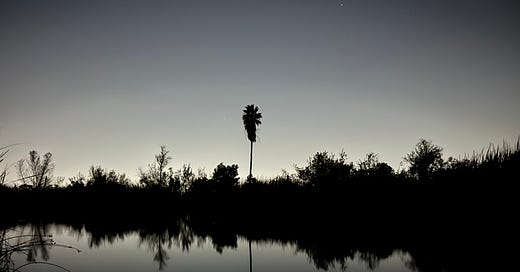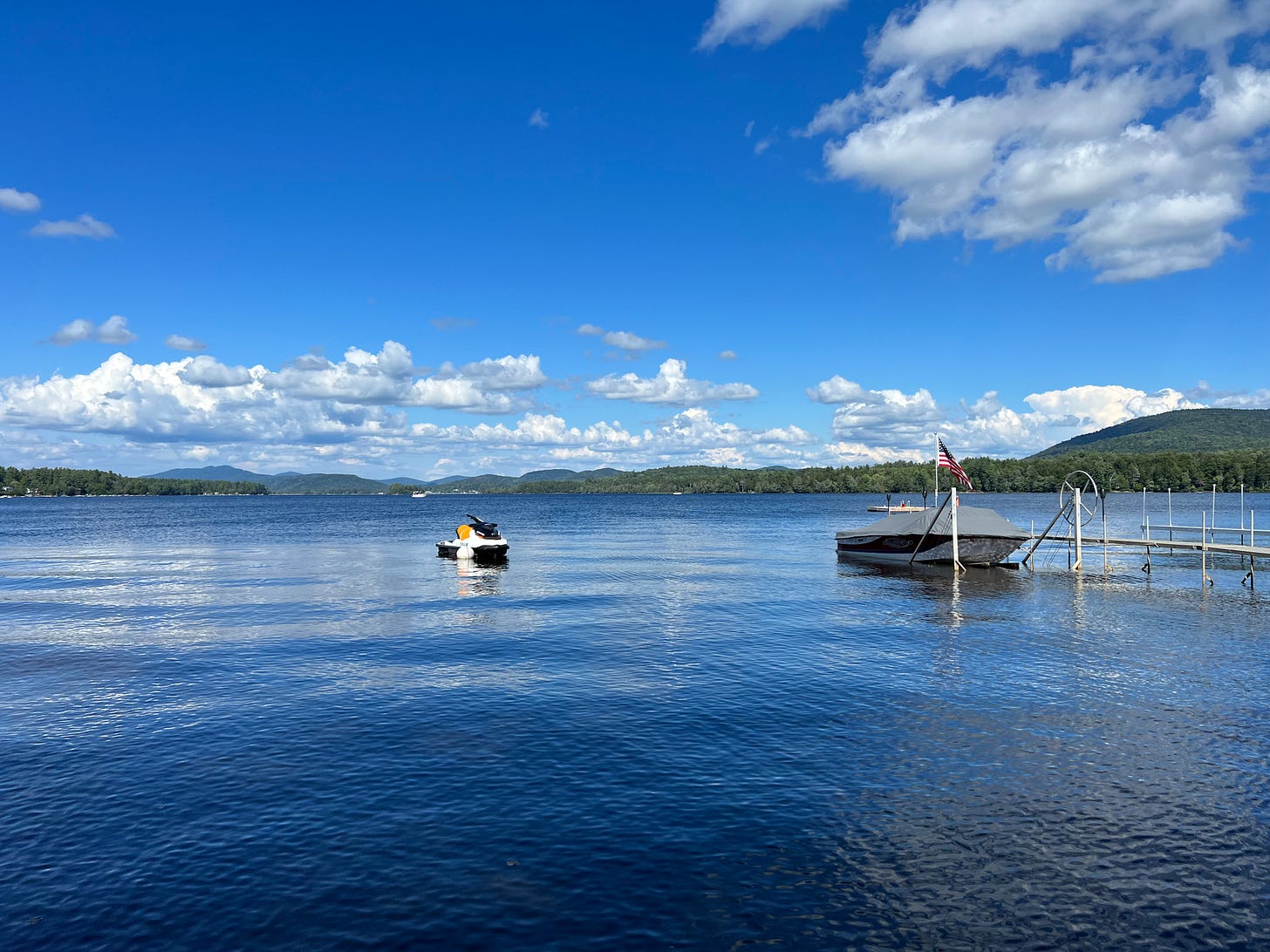Fostering Aristotle's Life of Reflection
Three ideas about how to create more space for contemplation

As I was listening to this great conversation between Ezra Klein and his guest Maryanne Wolf, she mentioned a a nugget from Aristotle’s Nicomachean Ethics which really resonated with me. In an early section of Ethics, Aristotle writes about what he sees as the three most prominent modes of life: the life of enjoyment (leisure), the life of politics (career and public life), and the life of contemplation (reflection). All three of these modes are important, but we particularly struggle with the life of contemplation in our current-day economy where our attention coveted.
This week, I want to highlight why creating space for reflection is important and encourage you with a few ideas to prototype to deepen your reflective practices this holiday season.
1. Schedule and routine are not inauthentic
One of the biggest challenges I see in my own experience with creating space for reflection is overcoming the false conflict between routine and authenticity. It is easy to think that something scheduled is inauthentic and therefore less valuable. We intrinsically link authenticity with spontaneity. However, the opposite is true. By scheduling an activity, we are saying that it has a level of importance that is at the same level as other tasks in our schedule.
This is most often a challenge when trying to find time for pursuits that are a part of our lives of leisure and contemplation. If you don’t make these things happen, they won’t. If you say you care about regular exercise but don’t put it on your calendar, are you really serious about making it happen? The same thing can be said about making time for a contemplative practice like reading, meditation, or prayer.
In our career-driven world, it is easy of the life of productivity or politics where we interact with the outside world to dominate. One way to get serious about our leisure and reflective goals is to make sure that they get space on the calendar. And the excuse of not having enough time is often just a lie. It’s more likely that we’re just not willing to make it a priority.
One of the best practices I’ve developed is a habit to read before bed each night. I learned from listening to Ezra Klein this week that have something in common – we both doze off to sleep at night jolted by the impact of dropping our Kindles on our faces as we doze off.
2. Exercise makes time, it doesn't take time
It is also true that sometimes we don’t realize the way that leisure and reflection can help to improve our productivity. One of my favorite lines from Laura Vanderkam’s latest book Tranquility by Tuesday is “exercise makes time, it doesn’t take time.” Her point is that the time we take to devote to restorative habits like physical exercise pay dividends in the long term, making up for the time they cost by helping us to work at a higher quality. There are a lot of things like this in life. It can be hard to convince yourself that going to sleep instead of cranking through your inbox at 11 pm is the right decision, but more often than not, it is.
3. Be accountable to yourself and others
Another important aspect of cultivating a life of reflection is fostering accountability. I do this in a few ways, both on the individual and community level.
As an individual, I try as much as possible to create something with what I’m learning. This newsletter is one example. Writing about something I’m learning each week and sharing a blurb for a book I’ve found interesting forces me to read and think in a different way which pushes me deeper. This is combined bias toward action and building in public is a great way to keep yourself moving forward – faltering and failing though it may be.
Another great way to keep yourself moving forward is to find or foster a community that can encourage you and create scheduled checkpoints. In my life, this plays out in a variety of ways. I have a men’s group that I have been meeting with each Friday morning for the past five or so years now. I have another group of guys from church that I get dinner with once a month. While the conversations at these meetings tend to focus on topics of theology and philosophy, the content doesn’t have to be deep for these to be valuable. The monthly murder mystery book club I’m a part of functions in the much the same way, creating the space and excuse for deeper conversations to surface. The book in many ways is just an excuse to spend time together. The key is to have some time set apart on your calendar and then show up.
If you don’t have any groups like this in your life right now, that’s ok! It’s your chance to find one or start one. It is as easy as asking a friend to read something with you and meet over coffee to discuss it. The key is just to keep taking one step at a time – and never end a meeting without getting the next one on the calendar!
Try. Fail. Try again.
As with a lot of things in life, the most important thing is to just do something. Figure out what you want to try and then plan the next step to take you in that direction. Then reflect on the impact it has on you and use that encouragement and feedback to fuel you as you continue.
Driving a jet ski is a good analogy for the importance of maintaining movement. One of the most important concepts when driving a jet ski is that you need to be moving forward in order to steer. Life is much the same way – get moving and then think about steering.
The Book Nook
If you’re looking for a good read on how to be better with your money, look no further than The Psychology of Money by Morgan Housel. This was a quick, easy, and fun read which covered a lot of ground. I really enjoyed Morgan’s no-nonsense approach and the anecdotes he shared. Lots of great snippets of wisdom in here. A few of my favorites:
I love Voltaire’s observation that “History never repeats itself; man always does.” It applies so well to how we behave with money.
Bill Gates once said, “Success is a lousy teacher. It seduces smart people into thinking they can’t lose.”
“Enough” is realizing that the opposite—an insatiable appetite for more—will push you to the point of regret.
Reminds me of Jesus’ words in Luke 12:15: ‘Then he said to them, “Watch out! Be on your guard against all kinds of greed; life does not consist in an abundance of possessions.”’
Napoleon’s definition of a military genius was, “The man who can do the average thing when all those around him are going crazy.” It’s the same in investing. Most financial advice is about today. What should you do right now, and what stocks look like good buys today?
But doing something you love on a schedule you can’t control can feel the same as doing something you hate.
Money’s greatest intrinsic value—and this can’t be overstated—is its ability to give you control over your time. To obtain, bit by bit, a level of independence and autonomy that comes from unspent assets that give you greater control over what you can do and when you can do it.
A wise old owl lived in an oak, The more he saw the less he spoke, The less he spoke, the more he heard, Why aren’t we all like that wise old bird?
Investor Bill Mann once wrote: “There is no faster way to feel rich than to spend lots of money on really nice things. But the way to be rich is to spend money you have, and to not spend money you don’t have. It’s really that simple.”
The Professor Is In

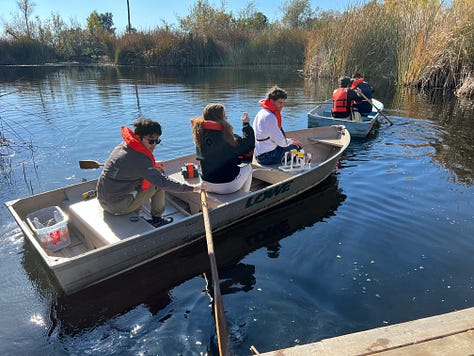


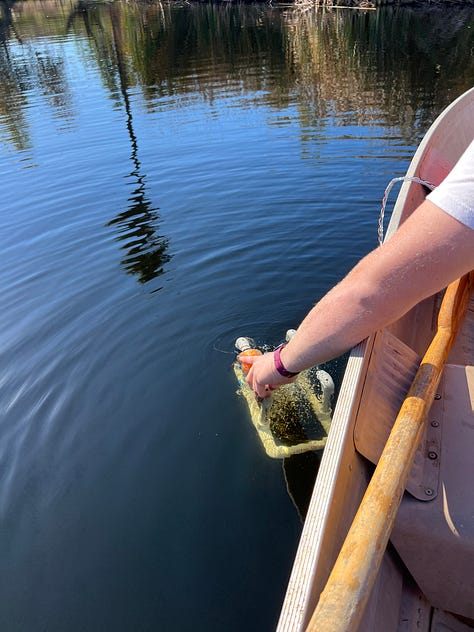

The last week of classes is always a busy one. This last Friday I had a day packed full of fun: starting out on the lake with my E79 students for their last practicum where they launch their underwater robots in the lake and measure temperature and their robot step response.
After a morning at the lake, I pivoted inside to see the results of the hard work by my students in MicroPs this semester. There were a set of great projects in E155 this year including:
I’m very proud of my students’ great work!
Leisure Line
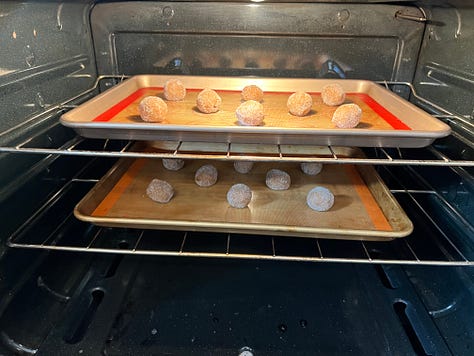

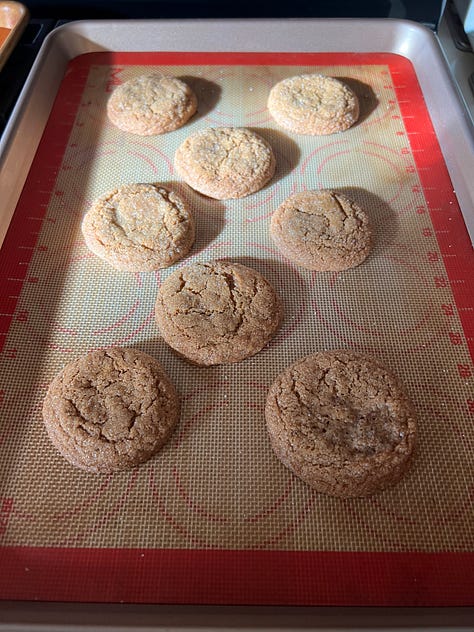
The results of my most recent weekend kitchen science project. These soft and chewy molasses cookies from Sally’s Baking Addiction are amazing. Try them out!
Still Life
Night mode on the iPhone is cool. This was captured in almost complete darkness as the final team collected their last set of data with headlamps out on the lake.

